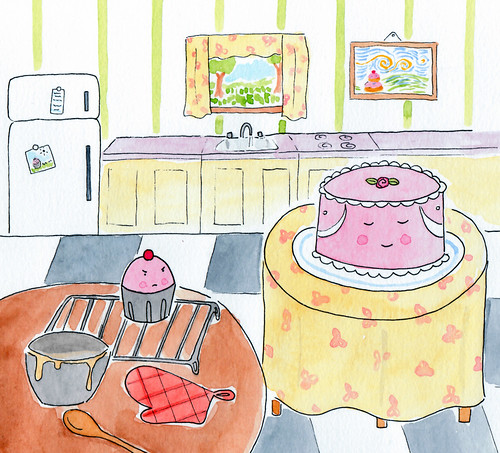
Edi-mology is a new featurette on CakeSpy, designed to explore the etymology and meanings of the terminology behind the baked goods we all love so much. One thing is for sure: this hunger for knowledge can sure give you an appetite for baked goods!
Today's lesson: CAKE
Definition:

Etymology:
According to the food historians, the precursors of modern cakes (round ones with icing) were first baked in Europe sometime in the mid-17th century. This is due to primarily to advances in technology (more reliable ovens, manufacture/availability of food molds) and ingredient availability (refined sugar)....The first icing were usually a boiled composition of the finest available sugar, egg whites and [sometimes] flavorings...It was not until the middle of the 19th century that cake as we know it today (made with extra refined white flour and baking powder instead of yeast) arrived on the scene...Butter-cream frostings (using butter, cream, confectioners [powdered] sugar and flavorings) began replacing traditional boiled icings in first few decades 20th century. In France, Antonin Careme [1784-1833] is considered THE premier historic chef of the modern pastry/cake world. You will find references to him in French culinary history books.
(Note: if you're interested in more Cake Lore, you might also want to check out Leslie F. Miller's book Let Me Eat Cake

Idioms:
Take the cake: a. to surpass all others, esp. in some undesirable quality; be extraordinary or unusual: His arrogance takes the cake.
b. to win first prize.
